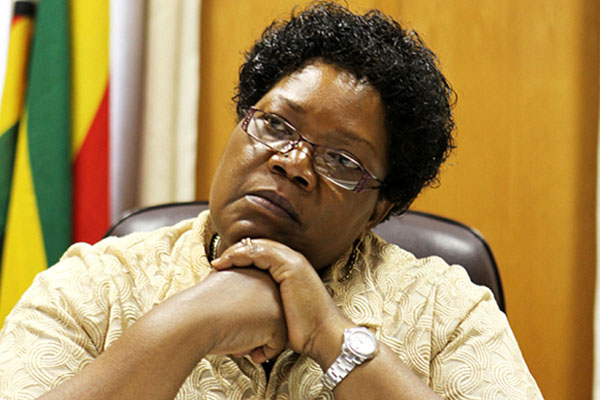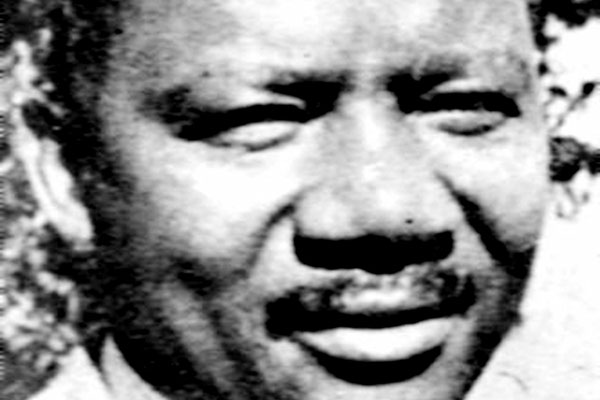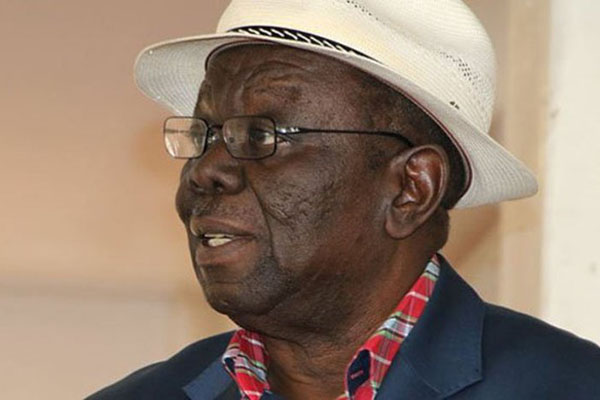Zimbabwe: The passing of Neo-Colonial Man

THE OTHER SIDE NATHANIEL MANHERU
The year 1970 saw the birth of a publication titled “The Passing of Tribal Man in Africa”. Edited by a Canadian academic, the late Peter C. W. Gutkind, the publication challenged entrenched Anglo-Saxon ideas which had congealed into a fashionable discipline called anthropology which in fact had grown affixed to the “science” of administering colonies largely found in Africa.
Whilst this discipline did in fact have leading luminaries at its helm, its fodder largely came from white officers from different colonial administrations who gave local colour and validity to theories which these leading anthropology thinkers had developed. In our situation, these white colonial officers were initially called Native Commissioners (NCs), and later District Commissioners (DCs), as if to suggest some evolution from a focus on colonial subjects of attention to colonial units of administration. In reality, the change in appellation meant nothing in terms of the governing philosophy that imbued these men — and they were exclusively men — “on the spot”. Or their changeless focus.
Gales behind the throne
Whilst Lord Lugard may have used Nigeria to develop a governing philosophy for colonial projects on the continent — a philosophy called “indirect rule” whereby local traditional chiefs and structures fronted colonial officers while they themselves remained behind, but playing whispering “gales” behind the throne — the Rhodesians turned this otherwise “dry” governing philosophy into a “wet” governing manual through the instrumentality of the legendary Native Affairs Department, whose mouthpiece was a pseudo-scientific journal appropriately called Native Affairs Departmental Annual (NADA). It’s “longue dur^ee” status in defining post-colonial reality shows by its abiding preponderance as a key primary source journal in local research. But my focus is not on NADA, itself a key subject for another day. My focus is The Passing of Tribal Man in Africa.
Chitepo the great mind, hand
My interest in this publication was aroused by the opening article titled “The Passing of Tribal Man: A Rhodesian View”. Not many of you my readers have come across this article. Many of you may be wondering why it is so special as to warrant my attention. Well, it is special, very special. The hand that penned the article was that of Herbert Chitepo, the first black advocate of our country, and key architect of the armed phase of our nationalist struggle.
His eventful life was brought to violent extinction by a Rhodesian car-bomb which went off in Zambia in March 1975. The wreckage of his VW car is stored at the Museum of the Heroes Acre. Before being assigned to found and lead the armed struggle, Chitepo had been seconded to the newly-independent sister state of Tanzania as the founding African Director of Prosecutions. Back home, he had represented many African nationalists in their fight against myriad colonial laws that daily ensnared them.
An irreverent guest in Montreal
Herbert Chitepo prefaced the cited article by recalling how he had been an irreverent guest of Professor Gutkind in Montreal in the early part of 1967. I will let him recall: “One night we sat till late in the night, discussing many matters. I distinctly recollect the debate on anthropology and anthropologists, during which I rudely told my host that I disliked anthropologists, because basic to their study or discipline, was an attitude of cultural, if not racial, superiority.”
Chitepo then proceeded to quote from Arnold Toynbee’s tome, “Study of History”, and again from Claude Levi-Strauss, another leading scholar of the time. I shall not bore the reader by reproducing both extracts which the late advocate lifted to buttress his eminently erudite argument. What I will lift though, is his unbowed rudeness, even in the same article penned a good three years later: “. . . I can see the Westerner — and the anthropologist — paying some attention to this article.
‘Here it is — the tribesman will explain how he is passing — what it feels like to be passing’. It is like listening to an eloquent poet on his deathbed, lyrically describing how it feels to be dying. No one would wish to miss it. Those who read this article with the expectation that their curiosity will be satisfied will be disappointed.”
Black and white tribes alike
And he forcibly disappointed the Western reader, but in ways most edifying to a reader and any leader of African struggles. Predicating his analysis on a synopsis of Zimbabwean African history — much of it read within the prism of the Shona/Ndebele dialectic as was wont to please white Rhodesian historians — Chitepo swiftly proceeded to undermine white historiography by showing how the founding notion of the “Shona tribe” had always belied a more complex mosaic of small, distinct political formations with equally small, distinct dialects, which existed in scientific time and space; and how the notion of Ndebeles — themselves latecomers to this country who made it a mere 45 years before the white invaders — had equally belied their Zulu political and linguistic origins, which would not matter in the long run, thanks to colonial conquest and occupation of both “tribal” groups which then reshaped their history and politics beyond original narrow tribal foci.
What I found most exhilarating in Chitepo’s analysis was his complete irreverence to white epistemology. He noted: “The history of Rhodesia since the Mashona, ‘the Matabele and the white tribes came together at the turn of the last century’ has seen the introduction of a number of factors. Some tended to alter the character of the tribes, others to weaken it.” Yes, I suspect you missed the shocking irreverence, dear reader: by way of the audacious counter-narrative when Chitepo talks of “white tribes” alongside black ones! And mind you, this in 1970 when the myth of white superiority reigned obdurately supreme.
Then and before, the notion of tribe was restricted to primitive peoples and societies, meaning it was an abomination to deploy it in describing whites. This is how enlightened this black advocate was: he knew that alongside the politico-military challenge to white dominance was an epistemological dimension. A thought dimension, in simple terms. Structures and categories of thinking had to rebel, had to change likewise. Is this not what is missing nowadays? What we badly need to terminate the long colonialism that afflicts us well into Independence?
How Rhodesia ended tribes
Chitepo talks about how communication technologies — this is in the 1970s — had broadened the vista of both Shonas and Ndebeles beyond tribal formations; talks about how the logic and requirements of the colonial economy, principally poll tax, had thrown Shonas and Ndebeles into motley baskets by way of de-tribalised urban conurbations; yes, talks about how the once-revered institution of chieftaincy which used to sit at the governance apex of tribes, had been penetrated and bastardised by settler colonialism through The Native Affairs Act, thereby turning once regal chiefs into mere falsified tools of colonial misgovernance and misappropriation of a primary resource — land. Concludes Chitepo:
“In short, the policy of the white administration was to whittle down chieftainship. With this went the destruction of the tribe. The use of chiefs by the administration to enforce unpalatable ‘Native’ policies destroyed any confidence that the people might have had in the chiefs, who came to be identified by their people with the oppressive white administration. In return for this the chiefs got literally nothing. Their salaries until UDI were generally under £120 p.a. Most earned £60 p.a.”
A man ahead of his days
What is most fascinating is how Chitepo then uses all this to draw political lessons for the nationalist project. He noted: “All these factors tended to drive the former Mashona and Matabele tribesmen into unity under common subjection to white minority rule. Nothing creates unity more surely than common apprehension or common danger.
Tribal man in Rhodesia is indeed passing, in fact, has passed into history.” Chitepo then goes on to show how white rulers, beginning with Sir Edgar Whitehead, then Mr Winston Field and then Ian Douglas Smith, sought to give “artificial political respiration” to chiefs as a counter-balance to the National Democratic Party and its successor formations in order to defeat the passage of “the tribal man” into “a Rhodesian man”, which change, ironically, Rhodesia itself had brought about! And then a prescient Herbert Chitepo:
“That in Rhodesia there is now a single African national consciousness is clear. The present differences between the two banned political parties (Zapu and Zanu) in Rhodesia are not tribal. Each of the parties embraces the whole country and is supported by former Matabele and Mashona tribesmen — now nationalists of Zimbabwe.
There is a new force at work, a new vision and a new imperative. The people see a new hope and a new society in front of them. They have embraced it and they will inexorably follow the vision to its end.”
A rally against the girls, for the girls
Last week, Morgan Tsvangirai addressed a rally of his supporters in Gweru. The rally itself fell short of his expectations — far short of expectations. He had hoped for a million-man rally, remotely fashioned after and rivalling ZANU-PF’s “million-man march”, immediately meant as a countermand to President Mugabe’s Marondera Youth Interface rally which drew thousands in its wake.
But there is a way in which it may have satisfied him. The Gweru rally was not meant to answer to the ZANU-PF mobilisation challenge. Rather, it was meant to stamp Tsvangirai’s authority against a snotty Joice Mujuru who seems out to challenge his leadership of the grand-coalition, itself largely imagined.
And to prove the organizational logic and target was never ZANU-PF, Mujuru and her motley crowd of women leaders read Tsvangirai correctly, which is why they proceeded to stage a counter in Bulawayo by way of a gender-based rally. Still this came far short numerically, relative to what Tsvangirai mustered in Gweru. Numerically, they were thus defeated. But it was consequential enough to trigger worries in Tsvangirai and his male-oriented MDC-T.
Siamese who don’t know it
Whatever Obert Gutu says to an obliging section of the private press, two key facts stood stolid in the week that followed. Firstly, Morgan Tsvangirai told a visiting American lady official that Joice Mujuru “was mad” to think she herself can lead the grand coalition. That is on record, official, and I challenge the MDC-T leader to deny it. Of course both Joice and Morgan are decidedly mad to think either of them will lead what won’t exist. But that is stuff for another day.
The issue being to underline the gathering tension and irreconcilable differences between Joice and Tsvangirai, all of it over a political might-be, a political never-will! Secondly, it is true that Khupe, Matibenga and Misihairabwi-Mushonga pledged support to Joice, firstly as a woman candidate in 2018, and secondly to make a statement against Tsvangirai who stands accused of checkmating Khupe with two virile male appointments in the presidency.
Not that these women believe in Joice, but that they see her as good enough a blunt instrument with which to bludgeon Morgan. After all, it is now plainly clear to both Khupe and her virile male opponents that Morgan is fated to lose again to Mudhara, which is why the calculation in both camps is to engineer that loss, but without getting besmirched by it. All of Morgan’s men and woman won’t stand or challenge him for candidacy, which invariably means unsuccessfully standing against President Mugabe in 2018.
Both men and woman are eagerly waiting for the inevitable result, but anxiously worrying about where they will stand in its wake. And to that extent, Morgan and Joice are perfect Siamese, only without knowing it. They are the same obstacle, are wielded as same blunt tools and, in the end, will share the same fate summarised as a record defeat followed by a dishonourable exit that makes way for Chamisa, Khupe and possibly Biti, with Welshman Ncube, Priscilla and Mudzuri in tow. A definite opposition scenario for 2023.
A coalition he won’t want, he can’t stop
In Gweru, Tsvangirai made interesting remarks concerning the grand-coalition. Specifically whose idea it is/was, and why it won’t wither on the vine, much as it did a long time ago. He said: “Most people are talking about the coalition. Coalition yacho muZimbabwe has its own complications because it is a coalition before the elections.
They are different from the one in Britain which was done after the elections. Ours is different because you do not know qualitatively who is bringing more people. But why tichida coalition is because we do not talk of quantity as we already have a huge support base. The reason is that hatidi international community inozoti blamer kuti hamuna coalition seopposition ndosaka makadyiwa. We are doing this in the national interests.”
Excuse the muddled tenses, subjects and logic; that is typically Morgan when he speaks. Let’s concentrate on the drift of his meaning. The main ideas which come through from the foregoing need clinching. He does not believe in the coalition; or if he does, it is not for purposes of delivering on numbers which he knows he already has, albeit in static terms.
Too small and static to carry the day against Mugabe; big enough to thump Mujuru’s nose. He wants the coalition for something else: the coalition must help him secure legitimacy, which is why it is an issue of quality, not quantity. Certainly that betrays a politician who has internalized ZANU-PF message of delegitimising him. It is now a real complex within him, which is why he thinks Mujuru could wash away his non- and anti-liberation, his non- and anti-land reform sins. For both pass for the double-disability that eats him.
Ducking the blame syndrome
Secondly, the idea of a coalition has been foist on him by foreigners, unworkable though he knows it to be. Of course the image of “massive hand-holding” immediately recalls, much to his detriment, much to his dependency on the same Joice he hates.
And that he still goes ahead with an idea which isn’t his and which amounts to putting the cart before the horse, shows how hopelessly dependent on foreign thinking and support he and his party are. To the point of swallowing models which go against the master’s own practices! Still he does it both to get support and to remain in the good graces of powerful outsiders — the hatidi-international-community-inozoti-blamer syndrome.
Thirdly and fatally, Gweru amounted to a defeat prognosis for the opposition. Tsvangirai accepts defeat as inevitable; what he seeks to insure against is blameworthiness when that defeat eventually comes. But it is also a lot more than escaping blame; he wants the “handling” West to shoulder the blame both to get it to invest a result-rejection stake in the poll, and to enable him to salvage his political career after that defeat.
If the West is responsible for authoring a formula that brings about defeat of the opposition, then the West will help the opposition in rejecting results. That assures an international ring to the results dispute. And if the West’s formulae was implemented faithfully, then the West’s continued post-electoral support is still assured after the defeat: it will have cost the opposition victory and will thus stand by it through guilt.
And the bold assertion that he will, Trump-like, reject results that give victory to ZANU-PF is part of that pre-electoral support courtship. Through this, Tsvangirai hopes both to retain Western support, and to outflank his ambitious deputies. Hopes to live longer than his tenure and performance in 2018!
Patronising the West
Interestingly, Zimbabwean politics seems to suffer comparable second-tier political legitimacy crisis across the divide. In ZANU-PF, President Mugabe is facing exactly the same problem of models coming from the donor mould. Launched during the days of Joice and her late husband, the West is heavily invested in both camps: opposition and ruling. One finds a disgusting bid by aspirants in ZANU-PF to appeal to and play coquettish to the West. That includes patronizing sites which are sponsored by the West as listening posts. Such as SAPES. Or wanting to send signals to Western capitals through their organs and personages. Like Stephen Chan.
Which is probably why it is not difficult for furtive cross-party alliances which occur under the radar of our purblind media, but which those of us discerning enough clearly see. There is a way in which the tier which is potentially positioned to succeed President Mugabe, less through national polls, more through internal succession processes, seems predisposed for a neo-colonial political result for the country.
That — not 2018 — is what exercises President Mugabe: a net reversal of the gains traceable to his nationalist legacy. If Chitepo and his generation of nationalists worried about managing “the passing of the tribal man”, Mugabe and his lonely generation worries about “the passing of the neo-colonial man”. The Chitepo generation did not end tribal politics by upholding Western reading or Western tribal calculus. It was by rejecting both.
Lessons from history
But somehow, Mugabe’s successors seem keen to fit the West’s mould, which is what will deliver grief to them. In the struggle days, tribalism was defeated by making sure fighters were imbued by a broader outlook, epitomized in their above-tribe war-names. It was that outlook in a key stratum of the struggle which produced a successor to the errant Ndabaningi Sithole.
Not succession debate. Seen that way, one begins to understand the Mugabe strategy of divesting all political aspirants of key structures of the Party, principally the Youth and Women Leaguers, so these two key arms assume vanguard status in defending the values of the Party, and thereby his legacy. When it comes to controlling structures of the Party, no aspirant claims an edge. Only Mugabe does, and that is key.
He consolidated that at yesterday’s Mutare Youth Interface rally. And with key structures under his control, the Party will have a mound from which to produce a successor. Not the facile model we get from nutty professors and self-proclaimed advocates speaking from SAPES. Except that is all they know; they were not part of ZANU’s history. Icho!












Comments